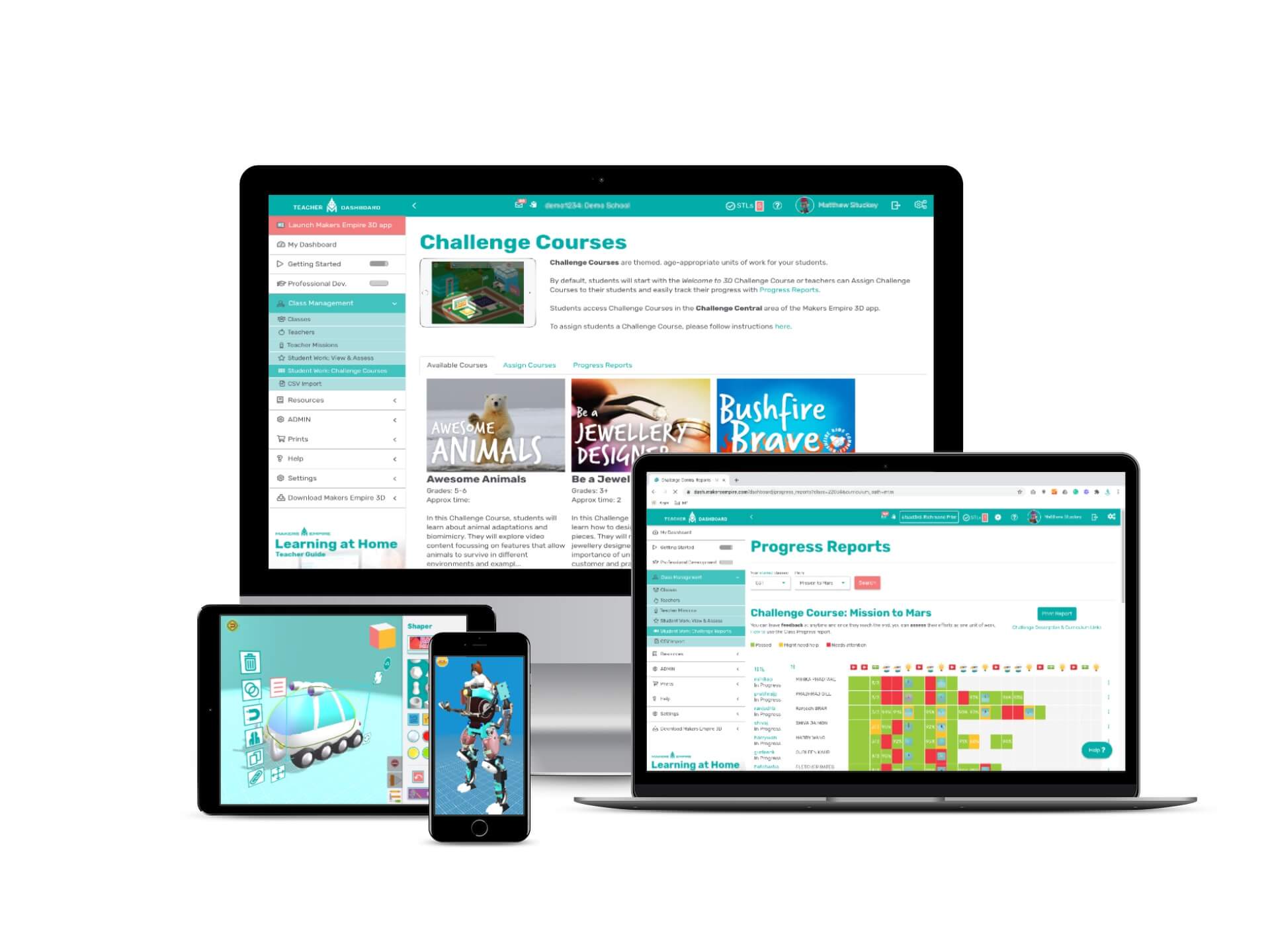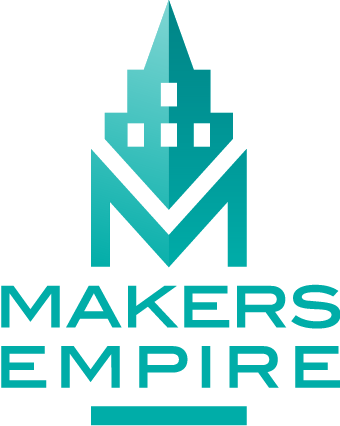

Makers Empire

South Australia, Australia
July 2023
Education & training services
Service with Minor Environmental Footprint
Australia,
Canada,
China,
Costa Rica,
Denmark,
Germany,
Hong Kong S.A.R.,
Japan,
Malaysia,
Mexico,
Papua New Guinea,
Qatar,
Singapore,
United Arab Emirates,
United Kingdom,
United States,
Vietnam
Makers Empire is a market-leading, gamified 3D design software that has been proven to help develop children's spatial reasoning and design thinking skills. Primary, elementary and middle school teachers use Makers Empire to improve student learning outcomes and student engagement in STEM. Makers Empire is the only program worldwide that has been shown by university research to improve students’ spatial reasoning skills, a known predictor of future STEM success. University research also reveals that using Makers Empire helps develop children’s creativity, critical thinking, design thinking and digital skills, whilst also improving students’ attitudes towards STEM. Moreover, Makers Empire is certified by Education Alliance Finland for pedagogical quality. Makers Empire, we want to help children become creators, innovators and problem solvers so that they can make their world better. Launched in 2014 in Adelaide, Australia, today Makers Empire is proud to empower three million student users in over 50 countries.
Overall B Impact Score
Governance 18.0
Governance evaluates a company's overall mission, engagement around its social/environmental impact, ethics, and transparency. This section also evaluates the ability of a company to protect their mission and formally consider stakeholders in decision making through their corporate structure (e.g. benefit corporation) or corporate governing documents.
What is this? A company with an Impact Business Model is intentionally designed to create a specific positive outcome for one of its stakeholders - such as workers, community, environment, or customers.
Workers 27.1
Workers evaluates a company’s contributions to its employees’ financial security, health & safety, wellness, career development, and engagement & satisfaction. In addition, this section recognizes business models designed to benefit workers, such as companies that are at least 40% owned by non-executive employees and those that have workforce development programs to support individuals with barriers to employment.
Community 14.0
Community evaluates a company’s engagement with and impact on the communities in which it operates, hires from, and sources from. Topics include diversity, equity & inclusion, economic impact, civic engagement, charitable giving, and supply chain management. In addition, this section recognizes business models that are designed to address specific community-oriented problems, such as poverty alleviation through fair trade sourcing or distribution via microenterprises, producer cooperative models, locally focused economic development, and formal charitable giving commitments.
Environment 6.0
Environment evaluates a company’s overall environmental management practices as well as its impact on the air, climate, water, land, and biodiversity. This includes the direct impact of a company’s operations and, when applicable its supply chain and distribution channels. This section also recognizes companies with environmentally innovative production processes and those that sell products or services that have a positive environmental impact. Some examples might include products and services that create renewable energy, reduce consumption or waste, conserve land or wildlife, provide less toxic alternatives to the market, or educate people about environmental problems.
Customers 28.7
Customers evaluates a company’s stewardship of its customers through the quality of its products and services, ethical marketing, data privacy and security, and feedback channels. In addition, this section recognizes products or services that are designed to address a particular social problem for or through its customers, such as health or educational products, arts & media products, serving underserved customers/clients, and services that improve the social impact of other businesses or organizations.
What is this? A company with an Impact Business Model is intentionally designed to create a specific positive outcome for one of its stakeholders - such as workers, community, environment, or customers.